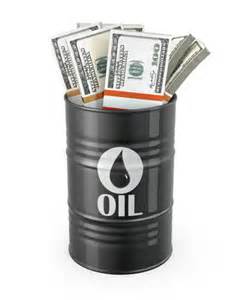Oil reached a 2016 high, hitting 43 dollars a barrel on Tuesday, and supported by hopes that upcoming meeting of oil producers will agree on steps to tackle a supply glut.
The rise was also supported by a weak U.S. dollar and further signs of strong demand in China.
Many members of Organisation of Petroleum Exporting Countries (OPEC) and outside producers like Russia are meeting in Doha, Qatar, on Sunday to discuss freezing output.
The dollar fell to its lowest in nearly eight months against a basket of currencies, supporting commodities.
Brent crude was up 50 cents at 43.33 dollars a barrel and had earlier in the session reached a 2016 high of 43.53 dollars per barrel.
U.S. crude gained 39 cents to hit 40.75 dollars a barrel.
“The weak dollar is one important reason,” said Eugen Weinberg of Commerzbank, adding “also, the fact that we are above 40 dollars and at multi-month highs is also contributing to the price increase as it is prompting some speculative buying”.
Also supporting prices are rising vehicle sales in China, a further sign of strong gasoline demand and a plan by thousands of oil and gas workers in Kuwait to go on strike from Sunday.
“If it is not clear that the strike will last long and will have any meaningful impact on exports or domestic production (including refineries), it does illustrate further the amount of pain that (Gulf) oil producers are also facing at current price levels,” said Olivier Jakob, analyst at Petromatrix.
Oil prices have collapsed from above 100 dollars per barrel in mid-2014 due to over-supply.
The OPEC decision in November, 2014 to abandon its traditional role of cutting output helped deepen the decline.
Crude gained a boost last week after a surprise decline in U.S. inventories from a record high.
But this week’s U.S. supply reports are expected to show an increase in stocks of 2.8 million barrels.
Industry group, the American Petroleum Institute, is scheduled to release its report on Tuesday, while the government’s figures are due out on Wednesday. (Reuters/NAN)

